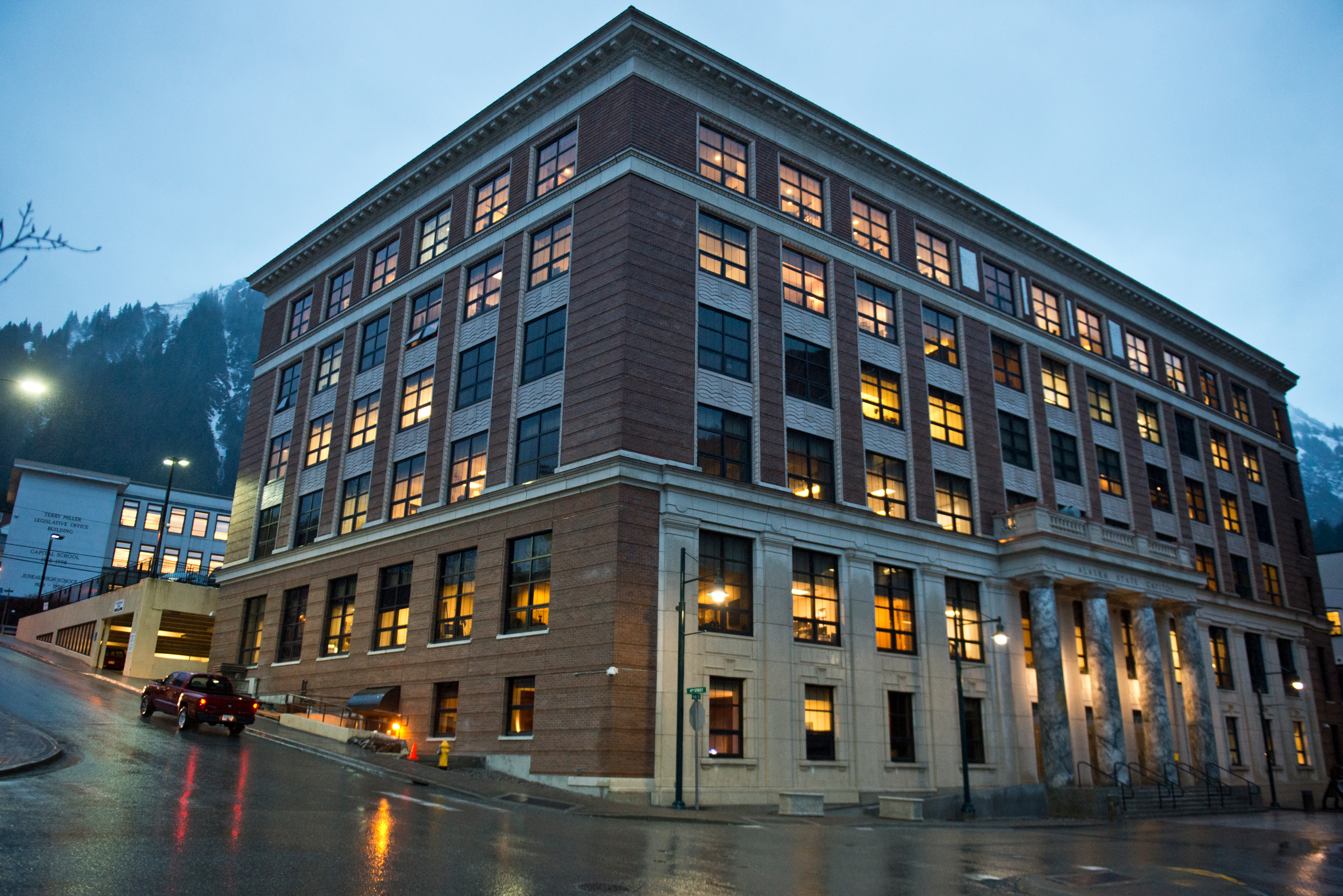Alaska passes a capital budget that includes $7 million to study North Slope roads
Lawmakers on Thursday passed a capital budget that drives a knife deeper into two controversial megaprojects and then adjourned their third special session of the year.
Even as they were all but killing the Knik Arm Bridge and the Juneau Access road project, they paid for a new effort to study Arctic roads. Supporters say the roads would make it easier to reach resources, but a critic said the roads could become a colossal waste of money.

The Legislature approved the delayed capital budget almost four weeks after the July 1 start of the fiscal year, putting up more than $230 million in state funds to draw down $1.2 billion in matching federal funds.
The Legislature had passed the annual operating budget last month, appropriating $3.73 billion in unrestricted general funds for state agencies. The measure was signed into law by Gov. Bill Walker June 30, hours before a state government shutdown would begin.
The capital budget, mainly for construction projects, passed the Senate Thursday 15-4, and the House 27-13. The chambers convened for a one-day meeting in Juneau, the year’s third special session, amid deep divisions over how to close a massive fiscal gap.
The delayed approval had led to concerns that some construction projects would be put on hold.
Gov. Bill Walker, in a statement, said he’s looking forward to signing the budget by Aug. 1.
“Alaskans can rest assured that construction and maintenance projects can continue, and jobs will be provided for them, their friends, and neighbors,” the governor’s statement said.
Among its key measures, the budget adds $7 million for construction of a school in Kivalina in Western Alaska, boosting the project’s total legislative appropriation to about $50 million.
It removed more than $25 million from the shelved Juneau Access road and Knik Arm Bridge projects — directing the money to other efforts, including some to the Kivalina school.
There’s $7.3 million for a new effort blasted by a critic on Thursday that aims to one day build North Slope roads to connect villages and reach remote oil fields.
The proposal, which has been supported by Natural Resources Commissioner Andy Mack and North Slope Borough Mayor Harry Brower Jr., wouldn’t pay for construction. Instead, it would provide money to help develop a management plan for the region over the next three years, with meetings in communities and consultants to investigate resource potential and conduct other studies.
The goal is creating “needed infrastructure” to support communities in the region, Mack said in a May 12 letter to the House Finance Committee. Once plans are developed, the state would hand the projects to the borough to complete construction.
A state website shows possible transportation corridors stretching hundreds of miles across the region and connecting villages and mineral prospects.
“The project is aligned with Gov. Walker’s objective to develop more permanent roads on the North Slope — such as gravel toll roads — that support oil and gas infrastructure development at a time when the state has limited funding to support project construction and development,” said a statement emailed by Elizabeth Bluemink, DNR communications coordinator.
But Lois Epstein, Arctic program director for The Wilderness Society, disputed the idea, which, she said, needs to be publicly vetted across Alaska. The state needs its money to maintain existing infrastructure, she said.
Construction of the roads doesn’t make economic sense, just like a now-canceled proposal to build a 500-plus-mile road to Nome from the Fairbanks area, Epstein said.
Brower said in letter to the governor in February that North Slope development will require permanent and seasonal roads, and the borough will work with communities to develop the plan, he said.
Brower said the effort is the first in many years “to make real progress in developing our communities.”